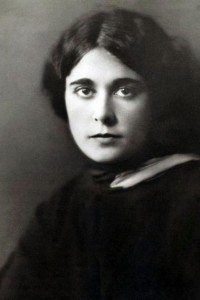The writer who cares more about words than about story – characters, action, setting, atmosphere – is unlikely to create a vivid and continuous dream; he gets in his own way too much; in his poetic drunkenness, he can’t tell the cart – and its cargo – from the horse.
Category: Writing Workshop
Recently I came across a quote -attributed to Ernest Hemingway- good enough to force me to break the blog’s recent silence:
“Prose is architecture, not interior decoration.”
Source: LitReactor
There is a vitality, a life force, an energy, a quickening that is translated through you into action, and because there is only one of you in all of time, this expression is unique. And if you block it, it will never exist through any other medium and it will be lost. The world will not have it. It is not your business to determine how good it is nor how valuable nor how it compares with other expressions. It is your business to keep it yours clearly and directly, to keep the channel open.
Martha Graham
 Some people say writing is their passion, their life, their this and that, their everything. You hear it from well-known authors and amateur scribblers.
Some people say writing is their passion, their life, their this and that, their everything. You hear it from well-known authors and amateur scribblers.
For others, however, making a living by putting words together becomes an unbearable burden, but these are rarely seen. It was the case of Frederica Sagor Maas,who died a few weeks ago at the amazing age of 111. Hollywood scripwriter since before the dawn of sound, her texts helped launch the career of several contemporary stars. Her memories, however, focus on the chauvinism, misoginy and discrimination that, as a woman, she had to suffer in that industry in the 20s.
Her filmography in IMDB lists many of her works as “uncredited”:
I would work so hard on some of the scripts and the minute I’d turn it in, someone else would take credit for it. You’d be ticketed as a troublemaker. Unless you wanted to quit the business, you just kept your mouth shut.
She finally did quit the business and took a job as a policy typist with an insurance agency in 1950, quickly working her way up to insurance broker. she never regretted her decision and in one of her last interviews she claimed that if she had the chance again, she would still quit writing and would rather clean floors.
Not sure if that’s some consolation for those of us who don’t make a living with our writing. Or as they say in Disney films, be careful what you wish.
